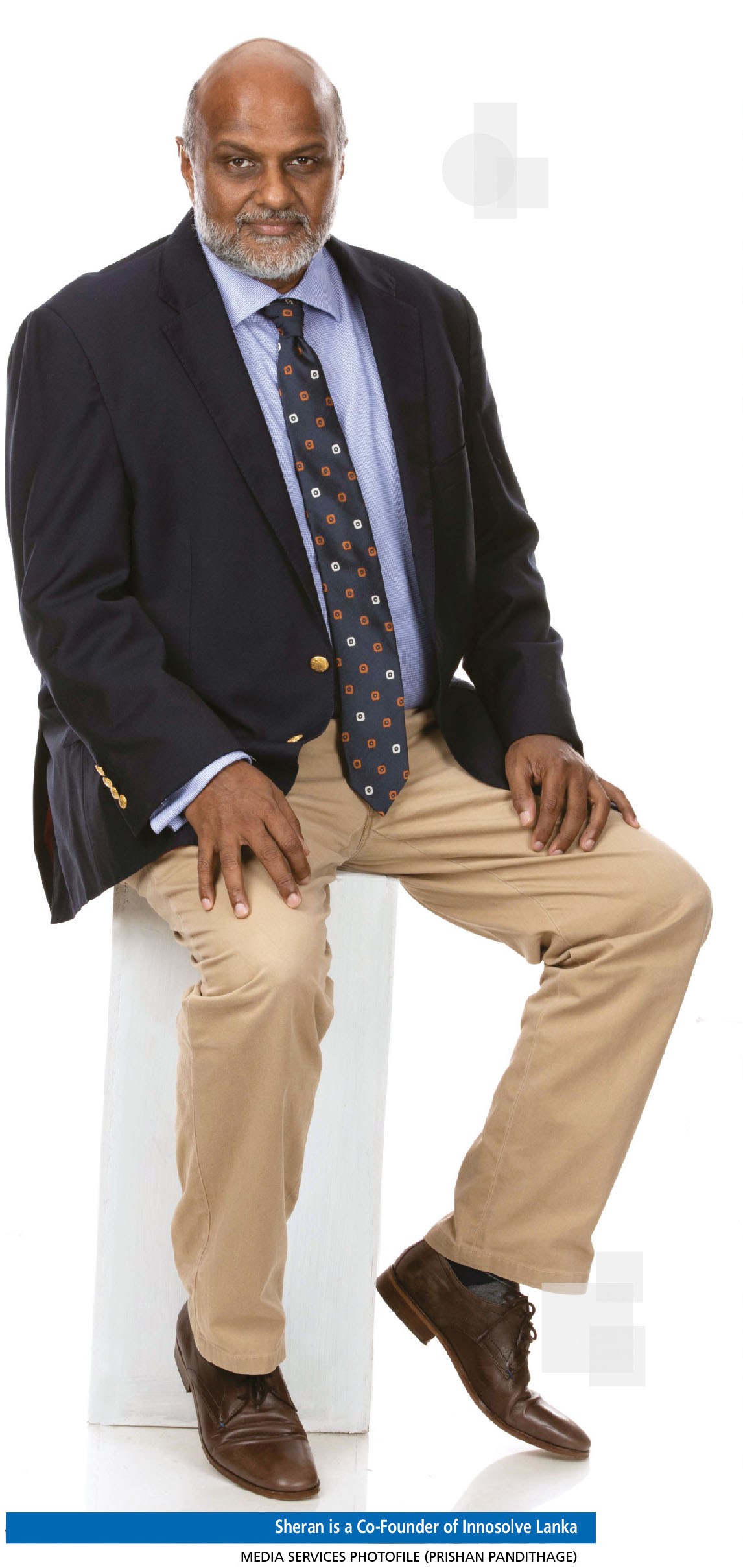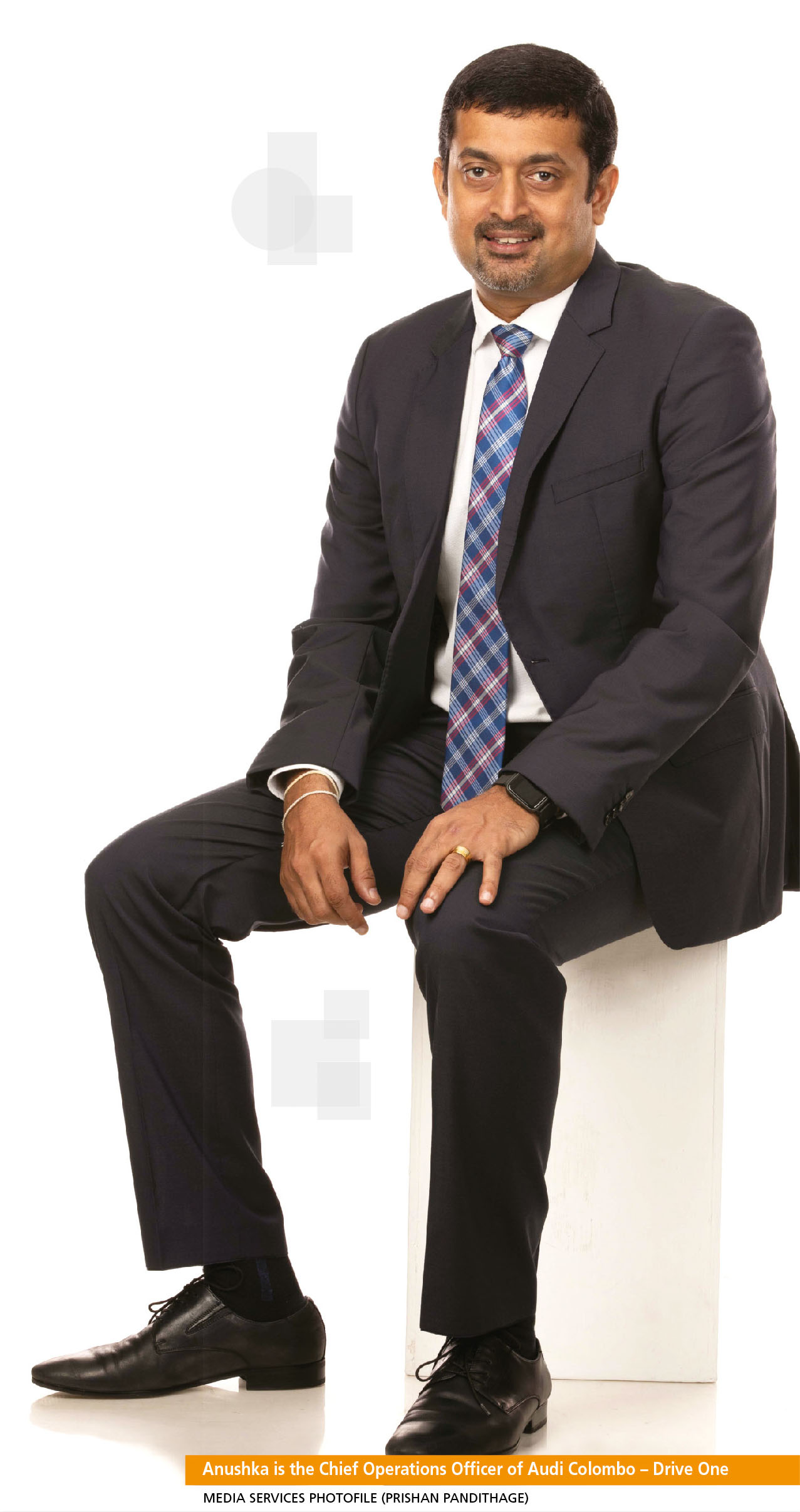MOTOR INDUSTRY
Sheran Fernando
Anushka Polonowita
Compiled by Savithri Rodrigo
Q: What challenges do you foresee for the motor industry?
Sheran Fernando (SF): Finding revenue to pay employees, persuading banks to provide working capital, managing supply chain disruptions as manufacturers are challenged to fulfill orders for vehicles and spare parts, and managing demand.
Anushka Polonowita (AP): The industry will shrink as sales slow, should import restrictions be extended by more than three months. If this continues, the industry may be compelled to reduce operations and therefore, its large employee base.
Q: Which vehicles will witness demand in this new environment?
SF There would be demand for utilitarian vehicles to fulfil a specific purpose. The luxury vehicle market will be the worst hit.
AP Prediction is difficult but tax structures will have an impact. Ideally, the demand should be for electric vehicles (EVs) subject
to the final sales price.
Q: With the onset of COVID-19, will we witness a transformation in the customer mindset with regard to purchasing vehicles?
SF Globally, customers have displayed a preference for shared mobility solutions rather than ownership. This trend will grow in Sri Lanka.
AP I don’t see a change because as long as public transport infrastructure remains, the same customer mindset will prevail with regard to the demand for vehicles.
Q: Has the depreciation of the currency been a concern?
SF The rupee depreciation increases vehicle costs but since duty is mainly levied on cubic capacity, the impact is less.
AP Absolutely. With the introduction of the luxury tax, the exchange rate has a larger impact than before.
Q: How do you view the demand for EVs?
SF Globally, demand is growing. A worldwide lockdown has highlighted the relationship between pollution and vehicle emissions. In Sri Lanka, an estimated 70 percent of pollution is caused by transportation. When vehicle imports are permitted, the government should make EVs more affordable through duty reductions relative to fuel based vehicles.
AP The air quality index improved drastically in Colombo due to the curfew and EVs make a case for reducing the use of fuel, which not only pollutes but also leads to a substantial outflow of foreign exchange. Exchange outflows will decline if there’s less dependence on the national grid by using solar power for EVs.
Q: What would customers be looking for in the luxury segment?
SF In car sales, it could be the most challenged segment of the automotive industry. Customers will look for more utilitarian vehicles at lower prices or more environmentally sensitive automobiles.
AP The luxury segment is complex. Customers will seek high levels of safety, comfort, reliability and performance. In the past, tax structures have been prohibitive to selling premium luxury models.
Q: Do you see registered or used car importers gaining more traction in this scenario?
SF They have been carrying more stocks than new car importers and would be better geared to face an import ban. Moreover, given that stocks were imported at a lower exchange rate, they could gain revenue. These importers can also react to a lifting of an import ban more rapidly.
AP Sri Lanka is a dumping ground for secondhand cars from Japan and Europe. Whenever taxes rise, this market gains ground. New car importers were hit by the luxury tax, and face temporary import restrictions and currency depreciation. Pre-owned cars will gain momentum in the short term.
Q: What assistance would you like to see the government extend to the automobile industry?
SF Legislation that makes it mandatory to register vehicle importers who should comply with the Registrar of Companies, not have a track record of tax defaults and prove that all statutory dues are paid; and government policy decisions in consultation with the industry – and refraining from making ad hoc decisions that impact the industry.
AP The automobile industry must be included in a list pertaining to debt moratoriums and working capital assistance loan schemes as it is as badly hit as others on the list. In the medium term, an easing of restrictions imposed on imports and long-term consistent policy for at least two years without change.
Q: What key amendments would need to be made to the import duty structure?
SF The recent amendment to the duty structure that brought in a luxury tax levied on the import value of vehicles prompted some importers to influence invoice values. Levying a duty based on value has always led to circumvention. The government should maintain the increase and decrease of the unit rate duty.
AP We need a simple transparent tax structure that cannot be manipulated, as well as governing mechanisms that eliminate unregulated vehicle imports. Franchise holders are governed by statutory regulations, compliance and warranties but many importers don’t pay tax and nor have employees. Haphazard imports lead to negative impacts on customers and erode the industry.
Q: Talent wise, what do you look for to strengthen the industry?
SF Sri Lanka has a trainable talent pool. But we need stable policy that’s global in its outlook, promotes public transport and shared mobility, and uses digital platforms that solve the problems of congestion and pollution.
AP A positive attitude and creativity are high on the agenda. Workshops require a high level of skill and knowledge. Qualifications mixed with positivity and creativity encourages talent to become better at what they’re specialised in.
Q: What are the key technological advancements out there?
SF Vehicles will be autonomous, connected, electric and shared (ACES). Driverless vehicles are found to be safer. EVs are greener. Shared mobility and multimodal transport platforms used internationally should be introduced.
AP The most noteworthy is autonomous driving. Examples include autonomous vehicles, digitalisation, more fuel efficient engines, EVs, longer life batteries, higher levels of safety and Car-as-a-service (CaaS) as modes of transportation. The digital communication landscape is also converting cars into smart devices and transforming the industry.





